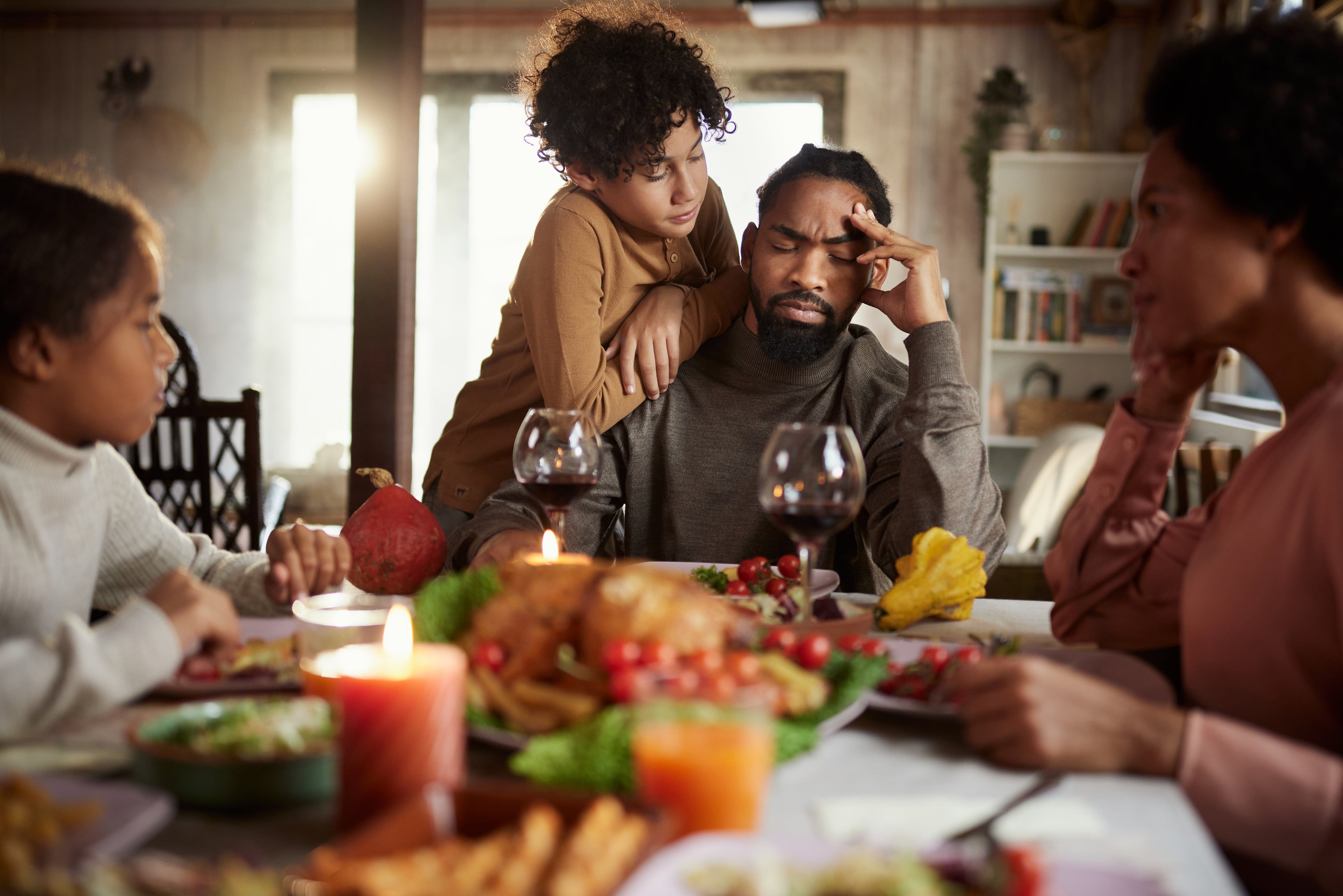Thanksgiving is nearly here, but this year’s turkey-filled holiday may be a bit more contentious than year’s past; the 2024 U.S. presidential election was only three weeks ago, after all.
Ever since President-elect Donald Trump claimed victory over Vice President Kamala Harris, some Americans may not be feeling so jolly and bright this holiday season, what with the merry-go-round of controversial cabinet picks and concerns over Trump’s anti-immigration policies and stance on LGBTQ+ rights.
For some Americans, Thanksgiving serves as a time to gather with friends and family and acknowledge what it is we’re truly grateful for. But for others, the holidays can prove to be difficult, especially when your political views greatly differ from your relatives. Not everyone has the ability to put politics aside for the sake of a peaceful meal, considering certain issues have direct impacts on the health and safety of our loved ones (or even ourselves).
These days, it seems nearly impossible to avoid such hard-pressing topics, and we shouldn’t be avoiding all responsibility when it comes to these discussions either. However, that doesn’t mean we should reject all that the holiday season, including Thanksgiving, has to offer, like feelings of joy and togetherness.
That’s why The Independent spoke with Sean O’Neill, a licensed marriage and family therapist, for his expert advice on how to navigate this year’s Thanksgiving dinner, all while avoiding political discussions that are sure to ignite a heated debate.
For starters, why is it that these contentious arguments tend to flare up at the dinner table in the first place? Well, according to O’Neill, peoples’ political views have become deeply intertwined with their identities and values. When someone disagrees with those views, it can feel like they’re challenging who we are at our core.
“Family dynamics and the nostalgia of the holiday can amplify emotions, creating a perfect storm for conflict. We’re also coming in with all the polarization we’ve seen on social media, where echo chambers have made it easy to dig in our heels,” he told The Independent. “So, it’s not surprising that discussions can turn heated when we’re all in one room, balancing our desire to connect with the pressure of defending our beliefs.”
When these dinner table discussions go south, it’s important to remember why we’re all celebrating Thanksgiving together in the first place. Although you may not agree with your friend or family member’s political views, it’s polite for a Thanksgiving host to acknowledge their opinion.
O’Neill suggested the response, “I understand where you’re coming from,” before gently sharing your own perspective. This way, it helps to create a more constructive dialogue rather than a combative one.
What’s more, using “I” statements can be especially effective during a contentious political discussion. Not only does this technique avoid any semblance of a personal attack, but it also invites a more open and respectful conversation.
“Keeping the tone friendly and focusing on the ideas rather than the person can help maintain a positive atmosphere while still expressing your disagreement,” the family therapist said.

Unfortunately, there may come a time during Thanksgiving dinner when that respectful dialogue veers off course, and the conversation must be redirected. According to O’Neill, the best way to diffuse tension is to acknowledge everyone’s feelings and views without dismissing them. Then, try pivoting to a related topic that’s less divisive, such as community issues or shared interests.
“Humor can also be a great tool; a light-hearted comment can break the ice and ease the tension,” he recommended. “Focusing on common ground or shared values can help remind everyone that, at the end of the day, we’re all human and connected, which is what really matters during the holidays.”
Instead of diving into politics this Thanksgiving, go around the table and ask your guests their favorite holiday traditions or what they’re most thankful for this year. Or, offer up some of the movies or TV shows you watched over the past few months.
O’Neill added: “If you throw in a few fun, light-hearted games or trivia about Thanksgiving, it can keep the mood upbeat and steer the focus away from potentially contentious topics, ensuring everyone has a good time!”
Ultimately, taking care of our mental health should be a main priority this holiday season, especially after such a politically divisive year. This Thanksgiving, prepare yourself as best as possible for potentially contentious dinner table discussions by practicing self-awareness and setting your boundaries.
“Know your triggers and how you usually respond in heated situations, which can really help you manage your emotions when things get tense,” O’Neill said. “Setting some ground rules for discussions can be super helpful, like agreeing to steer clear of certain topics or just focusing on understanding each other rather than debating.”
Additionally, carve out time for activities that can recenter and recharge your energy, such as going for a walk, reading, or even finding a quiet moment to yourself. Deep breathing and meditation ahead of the holiday season can also help you stay centered during stressful Thanksgiving debates.
“It’s helpful to remind myself that it’s okay to take breaks during gatherings, stepping away for a bit if things get too intense,” O’Neill added.
“And let’s not forget to prioritize gratitude and connection over confrontation — reminding ourselves of what we appreciate about each other can really shift the atmosphere and keep the focus on the positives instead of diving into arguments.”







